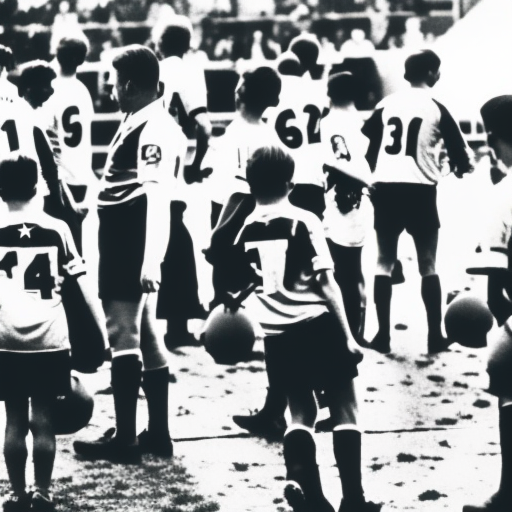Summary: 1950 FIFA World Cup
The 1950 FIFA World Cup, held in Brazil, was the fourth edition of the tournament. It was the first World Cup to be held after a 12-year hiatus due to World War II. The tournament featured 13 teams from around the world, including several European powerhouses such as Brazil, Uruguay, and Argentina. The tournament is best remembered for the “Maracanazo,” where Uruguay stunned Brazil in the final match to win their second World Cup title.
Tournament Format
The 1950 World Cup followed a round-robin format, with four groups of three teams each. The group winners would advance to the final round, where they would play in a round-robin format to determine the champion. The matches were played in various cities across Brazil, with the final match held at the Maracanã Stadium in Rio de Janeiro.
Group Stage
In Group 1, Brazil dominated their opponents, defeating Mexico 4-0 and Yugoslavia 2-0 to secure their place in the final round. In Group 2, Uruguay emerged as the winners, defeating Bolivia 8-0 and drawing 2-2 against Spain. Group 3 saw Sweden advance after defeating Italy 3-2 and Paraguay 2-2. In Group 4, the defending champions, Italy, were eliminated after losing 3-2 to Sweden and drawing 2-2 against Paraguay.
Final Round
The final round featured Brazil, Uruguay, Sweden, and Spain. Brazil only needed a draw against Uruguay in the final match to secure the title. The match, held on July 16, 1950, at the Maracanã Stadium, attracted a crowd of over 200,000 spectators.
The Maracanazo
The final match, known as the “Maracanazo,” is one of the most iconic moments in World Cup history. Brazil took an early lead in the second half with a goal from Friaça. However, Uruguay quickly equalized through Juan Alberto Schiaffino. With just 11 minutes remaining, Alcides Ghiggia scored the winning goal for Uruguay, stunning the Brazilian crowd into silence. The match ended 2-1 in favor of Uruguay, securing their second World Cup title.
Legacy
The 1950 World Cup had a profound impact on Brazilian football. The defeat in the final match led to a period of introspection and soul-searching within the country. It became known as the “Tragedy of Maracanã” and had a lasting impact on Brazilian football culture. The loss also influenced the construction of the new Maracanã Stadium, which was built for the 2014 World Cup.
Conclusion
The 1950 FIFA World Cup in Brazil was a memorable tournament that marked the return of the World Cup after a long hiatus. It featured thrilling matches, unexpected upsets, and the iconic “Maracanazo” that saw Uruguay defeat Brazil in the final. The tournament left a lasting impact on Brazilian football and remains a significant moment in World Cup history.












